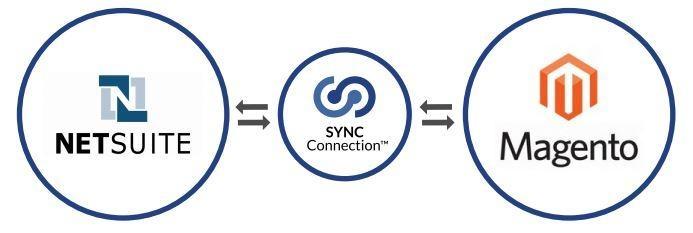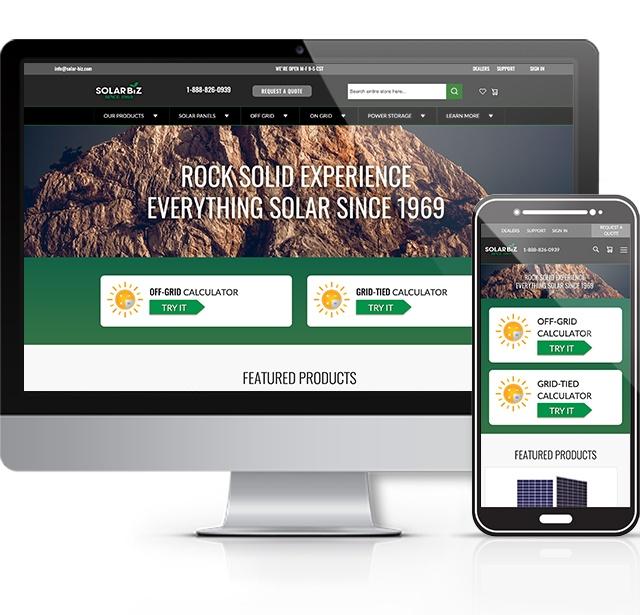Regardless of product line, most B2B and B2C companies use an ERP system to manage accounting, order processing, inventory control, tracking/planning, and other business functions. SAP, NetSuite and Dynamics 365 are three of the most common enterprise-oriented resource and planning tools, available without needing to develop code for a custom system. Then, along came Ecommerce. Now businesses want to integrate website sales with their ERP processes, and can do so with a connector integration.
Until recently, such integrations have been inefficient and riddled with bugs. However, businesses can now have a fully-integrated system that seamlessly moves info from the moment a website order is placed through to all ERP functions. Plus, order tracking info and more can flow from the ERP system to the ecommerce site, resulting in a premier, personalized buying and order management experience for the customer.

ERP-Magento Two-Way Integration: the Next Phase of Using Digital Technology to Grow a Business
Let’s take a step back. If you traditionally sold products through a sales force, phone orders, or a brick-and-mortar store, and added online selling, you may already be using tools that accommodate “web orders”. A plethora of functionality lets you accept orders, lets customers track orders, gives production teams complete work orders, and more.
You can now take the next step to more effectively compete on the internet by automating advanced processes. It takes using a powerful ecommerce platform, such as industry-leading Magento, and adding a connector that integrates ecommerce functionality with your specific ERP system.
About Magento…. it’s a scalable, enterprise-ready ecommerce system that’s designed for selling thousands of products with multiple configurations. It can provide dynamic customer portals and other advanced or custom functionality (in contrast to other ecommerce platforms that are designed for small or DIY retailers). See Trends of Magento’s Market Share Among Ecommerce Solutions and 25 Magento Statistics You Need in 2021 to Boost Your Online Business.
Using a Magento Ecommerce-ERP System Connector
Magento and ERP systems such as NetSuite, SAP, and Microsoft Dynamics are complicated systems, therefore the connector must be carefully engineered and customized. While there are off-the-shelf connectors, they do not use customizable logic and therefore are limited in the results they can achieve.
Based on years of successful website builds and integrating Magento into ERP systems, the Harris Web Works team developed SYNC ConnectionTM, a customizable tool that can meet each business’s specific needs. Using highly customizable logic and functionality, this connector makes it possible to synchronize online orders, customer data, and inventory with SAP, Dynamics, NetSuite and other ERP systems.
Solar Biz Case Study: Magento 2 Upgrade with NetSuite Integrate
With the capabilities introduced by using SYNC Connection to connect a Magento website with an existing ERP system, your customers can smoothly complete the checkout process even when there are unique buying conditions. For example, in Magento, a business can set specific:
- Payment terms
- Pricing
- Complex shipping preferences and rules
- Product bundles and kits
- And more
Getting and Sending Data – Bi-directional Syncing Between Systems
The connector leverages the core Application Programming Interface (API) built into Magento AND the ERP system(s) to get and send data to and from Magento and the ERP system. It acts as a middleman, leveraging ERP and Magento to normalize data, commands and other functionality between the once disjunct interfaces. In addition to improving the buying experience, Magento-ERP integration increases accuracy of orders and allows employees to focus on higher-value tasks than rote data entry.

Once you unlock the web with Magento, the ecommerce site is more than just a place to sell goods and services. As your website “talks” to your essential business units, you can further automate web processes and harness the scale of the internet. Ecommerce trends continue in the direction of giving buyers more information and control regarding their account and purchases, therefore it’s increasing imperative for businesses to efficiently connect their ERP systems with their commerce website.
Request a free B2B Ecommerce Assessment – learn how you can manage orders, product data, customer information, and accounting processes in one seamless system.
October 30, 2019
All Articles
